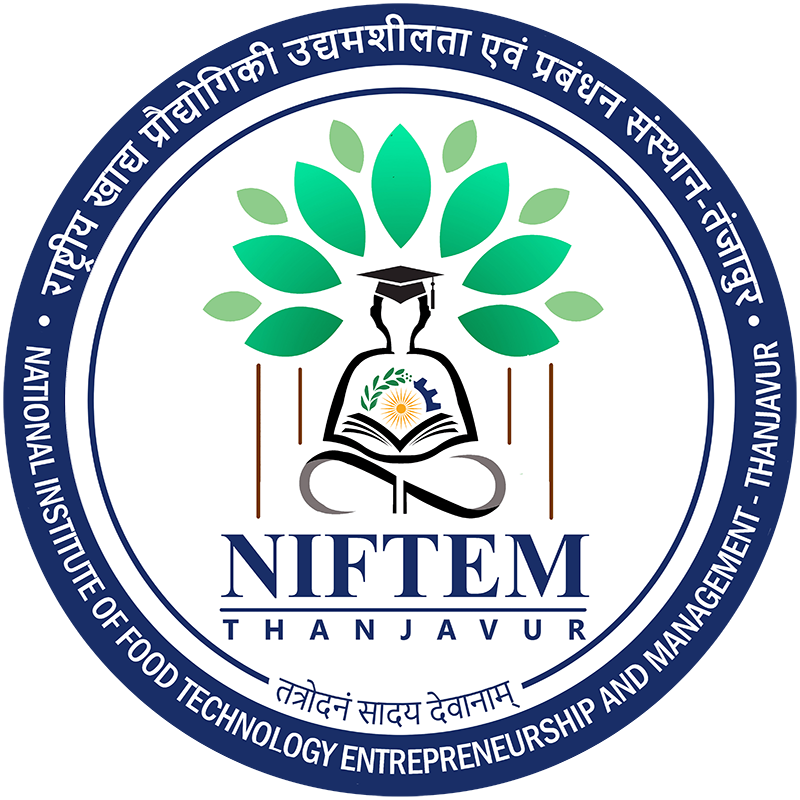ACADEMIC PROGRAMS
History
India is the third largest producer of all foods in the world and is behind only to China and USA. We produce more than 600 million tons of foods annually. We are the largest producers of pulses, milk, tea, all spices, first or second largest producer of fruits and vegetables, largest in live stock population, third largest in grains and oilseeds, fifth largest in poultry and seventh largest in fish productions. We have greater than 7000 km of marine landing where we can fish all around the year.
In spite of these superlative facts, the domestic food supply is inadequate at the receiving end and our export share in international markets is much less than 2%. The main reasons are due to lack of technical work force in food processing sector, fewer ventures in food processing businesses, huge losses, lack of technical knowhow and so on. The food processing sector has greater scope globally. Skilled professionals are in great need starting from food collection, transit, supply chain management, processing, value addition, cold chain management and up to consumer end.
The total value of food trade in the country is Rs.9,00,000 crores. Government of India has a target of achieving 3% of international food trade from current levels of 1.5% in the coming years. A meagre 1% growth rate in food processing industries will lead to 5 lakhs direct and 15 lakhs indirect employments.
ACADEMIC
Food Processing sector in India is poised to take off in a big way. Government of India has a target of achieving 3% of international food trade from current levels of 1.5% in the coming years. To achieve this growth and to improve upon it in the future, the sector needs technically trained manpower who are leaders and who can compete with big giants in food processing.
Considering vital importance, NIFTEM-T offers B.Tech., M.Tech. and Ph.D. programs in Food Processing Engineering starting from 2009-10 academic year. The undergraduate course is of four years or eight semesters duration, graduate program two years or four semesters duration and the doctoral program is usually of 3 years duration.Reservation policy based on government norms.
NIFTEM-T is offering the following courses
UG programme
(For More details: https://niftem-t.ac.in/ug.php )- B.Tech (Food Technology) – 8 semesters /4 years
Students are admitted based on an all India basis competitive exam, JEE (Main) through Join Seat Allocation Authorty (JoSAA).
PG Programmes
(For More details: https://niftem-t.ac.in/pg.php )- M.Tech (Food Technology) in Food Process Engineering - 4 semesters / 2 years - 17 seats
- M.Tech (Food Technology) in Food Process Technology - 4 semesters / 2 years - 17 seats
- M.Tech (Food Technology) in Food Safety & Quality Assurance - 4 semesters / 2 years - 17 seats
Ph.D Programmes
(For More details: https://niftem-t.ac.in/pg.php )- Ph.D (Food Technology) in Food Process Engineering- 6 semesters / 3 years - 17 seats
- Ph.D (Food Technology) in Food Process Technology - 6 semesters / 3 years - 17 seats
- Ph.D. (Food Technology) in Food Safety & Quality Assurance - 6 semesters/ 3 years – 17 Seats
We strive hard to create globally competitive manpower and we achieve this by the following many special qualities of our academic program:
- Our curriculum is very well laid out after careful discussions amongst peers at national and international levels.
- We have a good mix of theoretical and hands-on training in the curriculum.
- Our laboratory facilities are of international standards.
- Our professors have wide international exposure and contacts.
- We send our students to different places like companies, villages, and other organizations to get first-hand information on the problems faced by producers and the current status of production, storage, handling and marketing of foods.
- On the other hand, our students are sent to reputed international institutions around the world for exposure visits, internships, short-term training for getting research/ im-plant experiences in advanced laboratories. These exposures help to create globally competitive manpower.
